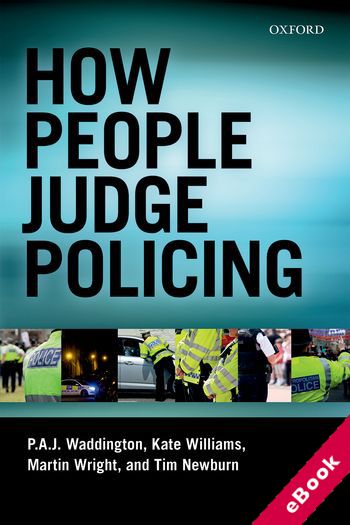
The device(s) you use to access the eBook content must be authorized with an Adobe ID before you download the product otherwise it will fail to register correctly.
For further information see https://www.wildy.com/ebook-formats
Once the order is confirmed an automated e-mail will be sent to you to allow you to download the eBook.
All eBooks are supplied firm sale and cannot be returned. If you believe there is a fault with your eBook then contact us on ebooks@wildy.com and we will help in resolving the issue. This does not affect your statutory rights.
When people witness occasions when police use their powers to investigate crime and arrest offenders, how do those members of the public assess what they have seen? This book reports research in which a variety of groups from the West Midlands watched short video-clips of such real-life incidents and then discussed their appraisal amongst themselves. What emerges from those discussions is that the practice of policing is deeply controversial. On most issues, group members were divided and strongly, often passionately arguing their case. There was no 'blank cheque' for the police, neither was there unremitting criticism, even though some of groups comprised young offenders or the homeless. People worried about whether or not the police on the video-clips had justification for their suspicions; how they managed situations to prevent them getting out of hand; and whether any use of force was justified. Allowing the reader to 'hear the voices' of dissension that were analysed, the authors present implications which are profound for the police and for all those who are policed - suspects, victims, bystanders, and the public at large - as well as practical proposals for police officers and police governance.